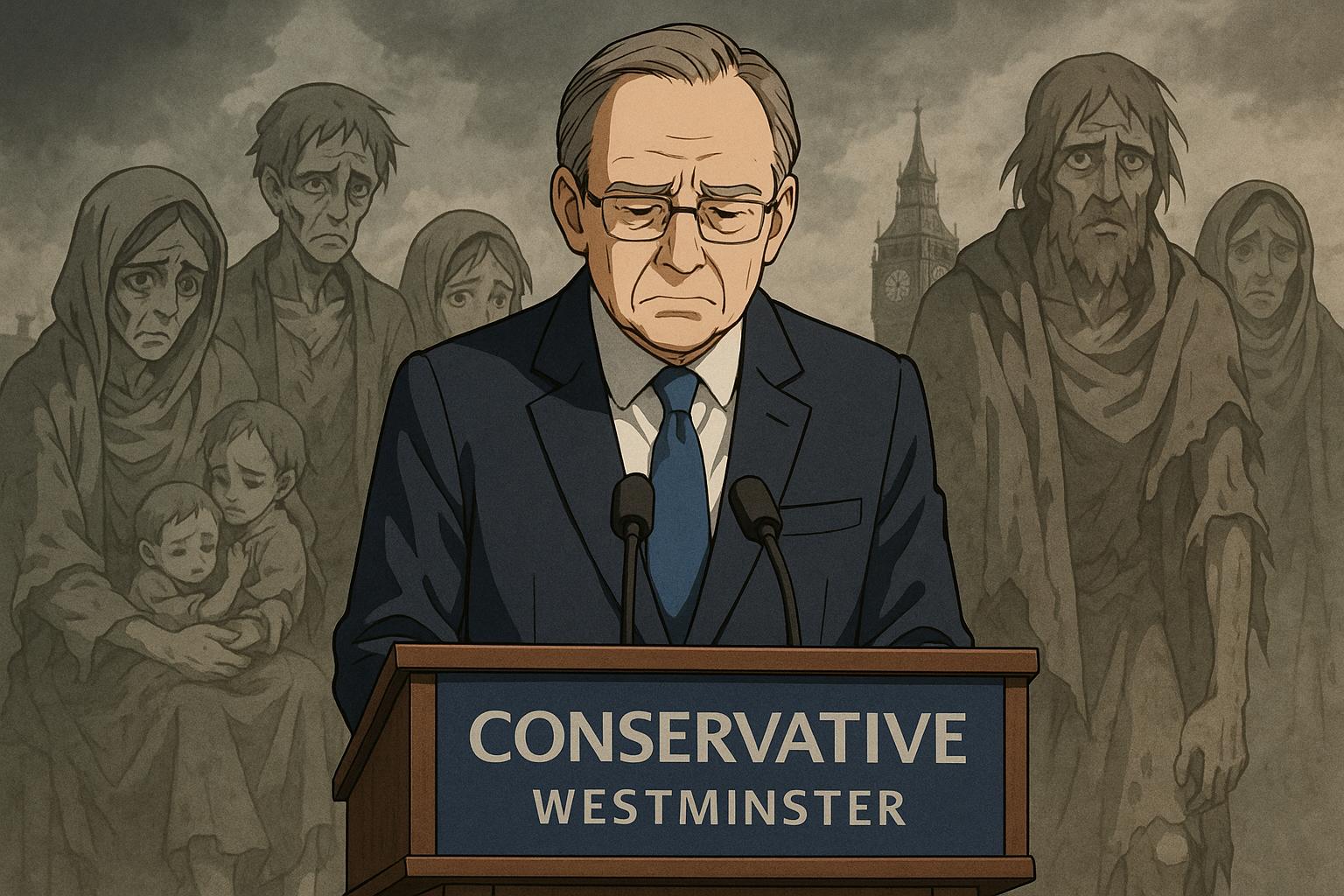A senior Conservative MP has stirred significant controversy following his remarks during a Westminster session that have been widely deemed “offensive and insensitive” in the context of the Irish potato famine. Andrew Griffith, the Shadow Secretary of State for Business and Trade, hastily dismissed suggestions that his comments were linked to Ireland, asserting, “There was no reference to Ireland.” Such a denial appears not only tone-deaf but also disingenuous, especially when considering the grim legacy of the famine, which saw the tragic loss of around one million lives in the mid-19th century due to a devastating potato blight compounded by governmental neglect.
The incident unfolded as Griffith lashed out at Labour and Chancellor Rachel Reeves over the soaring household bills, calling it an "Awful April" for countless UK households weighed down by crippling financial stress. Against this backdrop, Griffith's remarks have come under a harsh spotlight, prompting an examination not only of their content but also of their potential fallout. The intricate intersection of economic policies and historical sensitivities highlights a broader failing in current political discourse, particularly under the new Labour government that seems indifferent to the real struggles facing families today.
As part of Kemi Badenoch's newly appointed shadow cabinet, Griffith has a pivotal role in sculpting Conservative strategy while in opposition. He is expected to lead conversations around critical issues, including the severe economic challenges that everyday families are grappling with. However, in the wake of his insensitive remarks, he now finds himself entangled in a controversy that undermines the very discussions he ought to be advancing.
This episode is emblematic of deeper-rooted issues within the Conservative party that reflect a lack of sensitivity to historical injustices. In an era where the political landscape is rapidly shifting under the Labour government, grasping the weight of historical contexts when addressing economic struggles is crucial. It is not just about the present implications of fiscal policies but also about acknowledging the legacy of suffering that continues to impact societal discussions. As accountability grows, there is an urgent need for all political actors, including those in opposition, to conduct themselves with greater responsibility and awareness in their communications, especially when addressing such sensitive matters.
Source: Noah Wire Services
